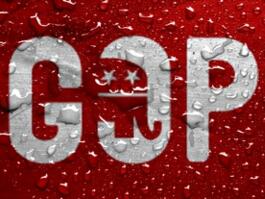Voters Fear More Political Violence, Blame Trump
Voters strongly believe candidates should tell it like it is, but most expect an increase in political violence this year, thanks in large part to Donald Trump’s unvarnished populist message.
A new Rasmussen Reports national telephone survey finds that 61% of Likely U.S. Voters believe there is a greater danger of political violence this election cycle compared to past presidential campaigns. Only nine percent (9%) feel there is less of a danger this campaign season, while 26% say the potential for violence is about the same. (To see survey question wording, click here.)
Fifty-two percent (52%) blame Trump’s positions rather than his political opponents for the recent violent protests at some of his rallies. Thirty-one percent (31%) say Trump’s opponents are more to blame. Seventeen percent (17%) are undecided.
Liberal political activist group MoveOn.org has taken credit for the protests last weekend that forced the cancellation of a Trump rally in Chicago, but 72% of Democrats still blame the Republican front-runner’s positions more than his opponents for the violence at some of his recent rallies. Just 39% of Republicans and 42% of unaffiliated voters agree.
Still, 83% of all voters believe it’s more important for political candidates to tell voters what they really think rather than make sure no one is offended by what they say. Just nine percent (9%) think it’s more important for candidates not to offend anyone.
Democrats are more likely than Republicans and unaffiliateds, however, to feel it’s more important for candidates not to offend others with their political positions.
(Want a free daily email update? If it's in the news, it's in our polls). Rasmussen Reports updates are also available on Twitter or Facebook.
The survey of 1,000 Likely U.S. Voters was conducted on March 14-15, 2016 by Rasmussen Reports. The margin of sampling error is +/- 3 percentage points with a 95% level of confidence. Field work for all Rasmussen Reports surveys is conducted by Pulse Opinion Research, LLC. See methodology.
Voters overwhelmingly rate freedom of speech as their number one constitutional right, but 52% believe there is less freedom of speech in America today.
One-in-four voters (24%) say they have attended or are likely to attend an event held by a presidential candidate this year. Among these voters, 58% think there is a greater danger of political violence this election cycle.
Most voters across the partisan spectrum agree that there is a greater risk of violence this year, but Democrats are worried more than GOP and unaffiliated voters are. Republicans and Democrats are twice as likely as unaffiliateds to say they have attended or are likely to attend an event held by a presidential candidate this year.
Sizable majorities in nearly every demographic category think it is more important for a candidate to tell voters what they really think.
But women and those under 40 are slightly more concerned than men and older voters that no one is offended by what a candidate says. Women and younger voters are far more likely to blame Trump’s positions rather than his opponents for the recent violent protests at his rallies.
Sixteen percent (16%) of blacks and 23% of other minority voters say it is more important for a candidate to make sure no one is offended by what he or she says. Only five percent (5%) of whites share that view.
Conservatives place more importance than moderates and liberals do on political candidates telling voters what they really think rather than worrying that no one is offended.
Trump has responded to critics of his abrasive campaign rhetoric by saying he would “gladly accept the mantle of anger” because the government is being run by “incompetent people.” Two-out-of-three voters (67%) are angry at the current policies of the federal government, and even more (84%) are angry at Congress.
Seventy-three percent (73%) think most politicians raise racial issues just to get elected, not to solve real problems.
Sixty-three percent (63%) of Americans believe people are less tolerant of each other’s political opinions than they were in the past.
Trump also has said throughout his campaign that “the big problem this country has is being politically correct.” Seventy-three percent (73%) of Americans think they have to be careful not to say something politically incorrect to avoid getting in trouble.
The Merriam-Webster Dictionary defines "political correctness" as “conforming to a belief that language and practices which could offend political sensibilities (as in matters of sex or race) should be eliminated,” and it has come to be understood by many as prohibiting critical comments about politically sensitive topics and groups.
Additional information from this survey and a full demographic breakdown are available to Platinum Members only.
Please sign up for the Rasmussen Reports daily e-mail update (it's free) or follow us on Twitter or Facebook. Let us keep you up to date with the latest public opinion news.
The survey of 1,000 Likely U.S. Voters was conducted on March 14-15, 2016 by Rasmussen Reports. The margin of sampling error is +/- 3 percentage points with a 95% level of confidence. Field work for all Rasmussen Reports surveys is conducted by Pulse Opinion Research, LLC. See methodology.
Rasmussen Reports is a media company specializing in the collection, publication and distribution of public opinion information.
We conduct public opinion polls on a variety of topics to inform our audience on events in the news and other topics of interest. To ensure editorial control and independence, we pay for the polls ourselves and generate revenue through the sale of subscriptions, sponsorships, and advertising. Nightly polling on politics, business and lifestyle topics provides the content to update the Rasmussen Reports web site many times each day. If it's in the news, it's in our polls. Additionally, the data drives a daily update newsletter and various media outlets across the country.
Some information, including the Rasmussen Reports daily Presidential Tracking Poll and commentaries are available for free to the general public. Subscriptions are available for $4.95 a month or 34.95 a year that provide subscribers with exclusive access to more than 20 stories per week on upcoming elections, consumer confidence, and issues that affect us all. For those who are really into the numbers, Platinum Members can review demographic crosstabs and a full history of our data.
To learn more about our methodology, click here.





